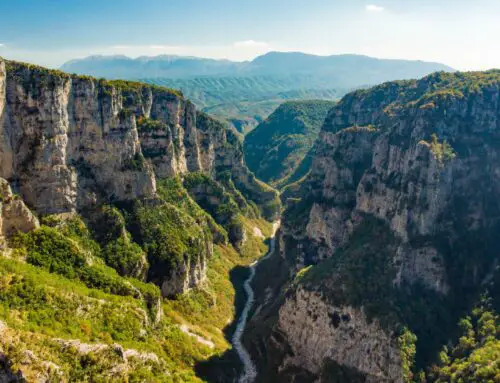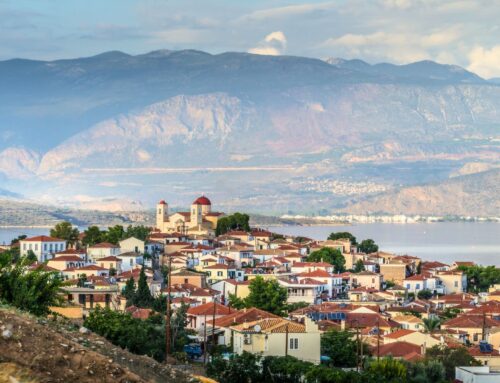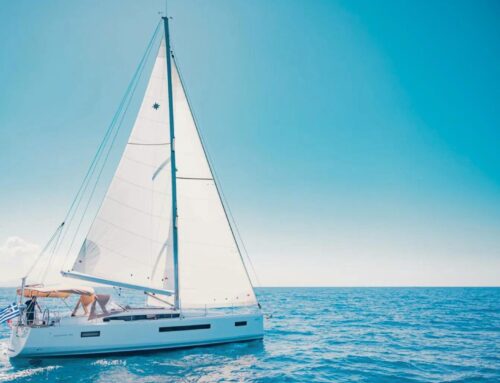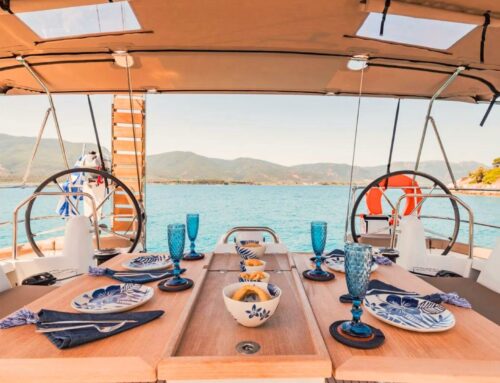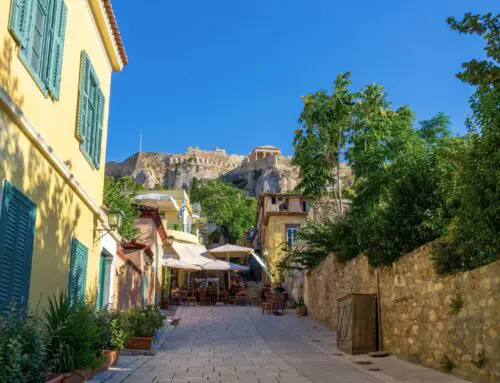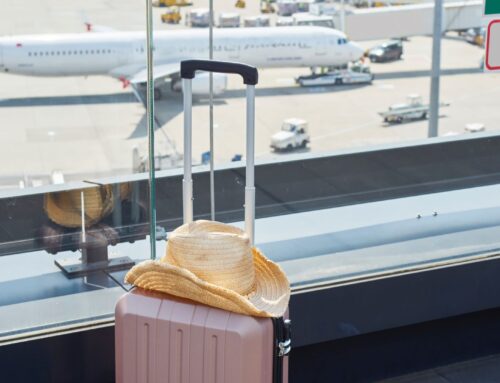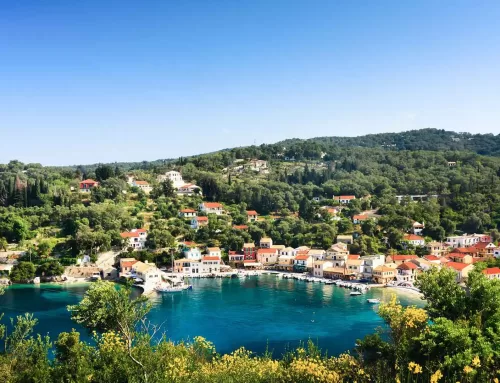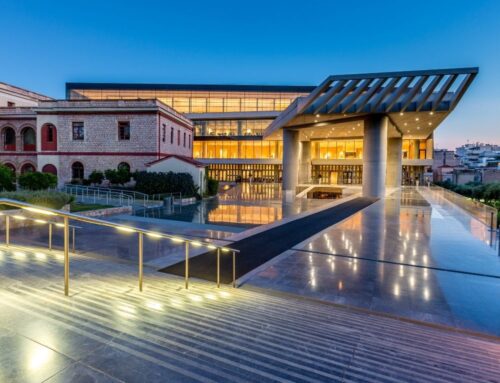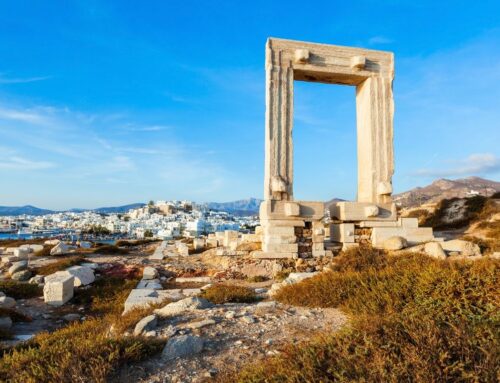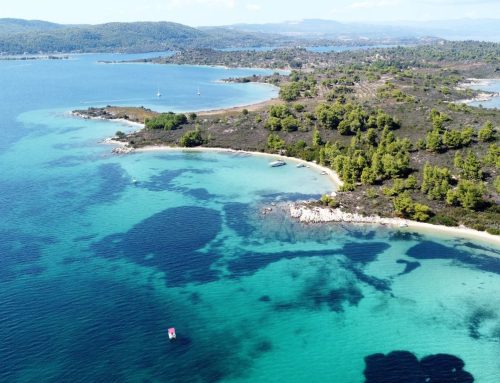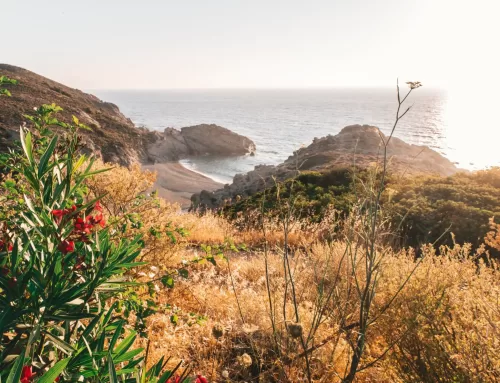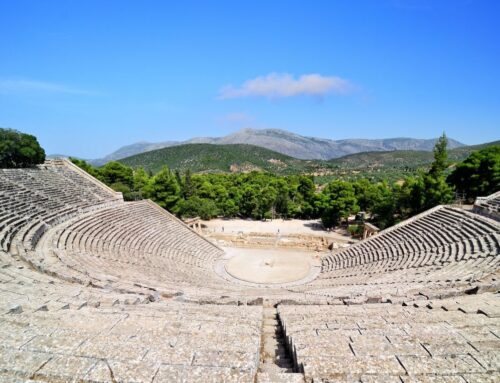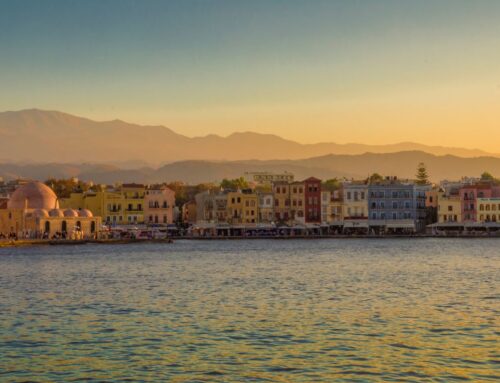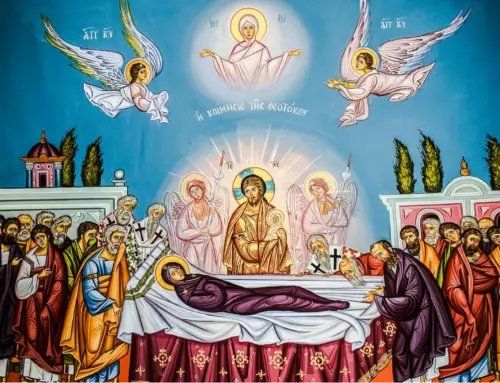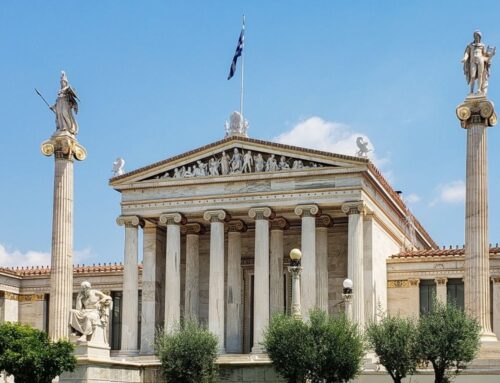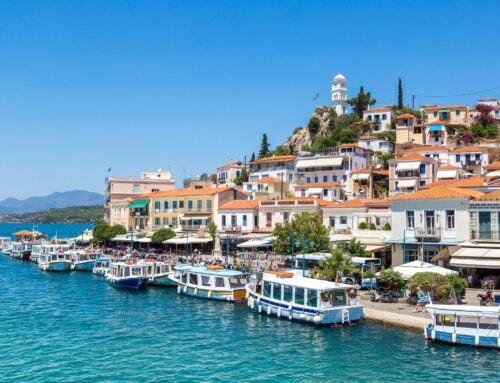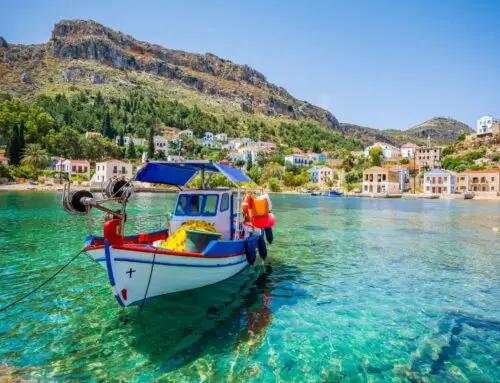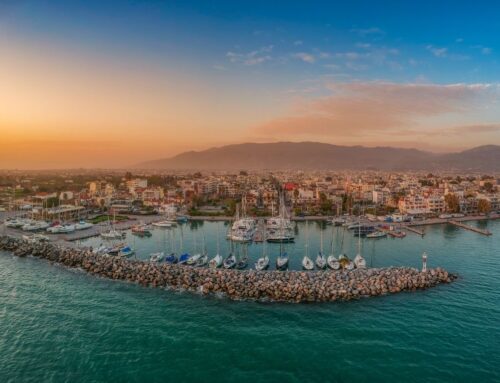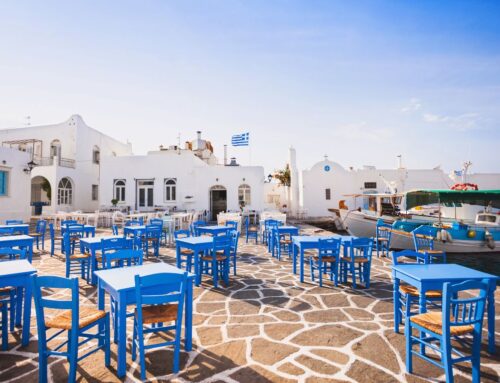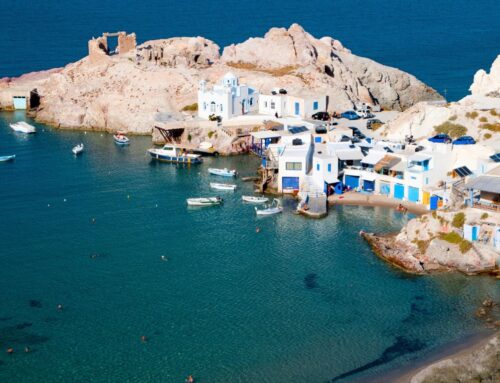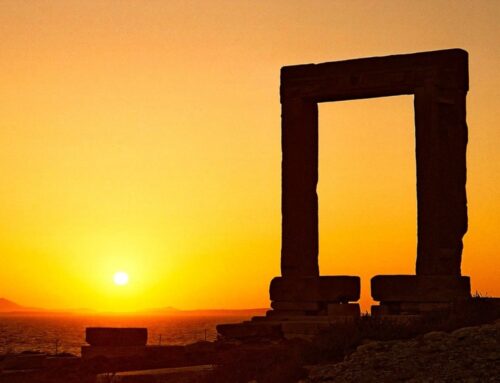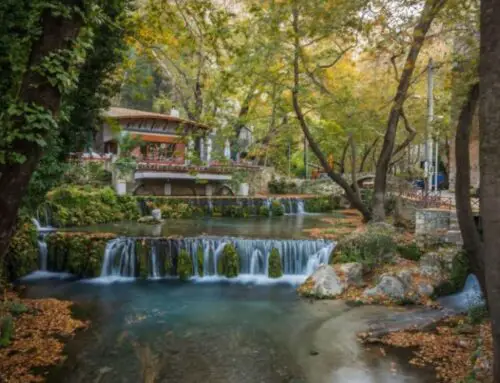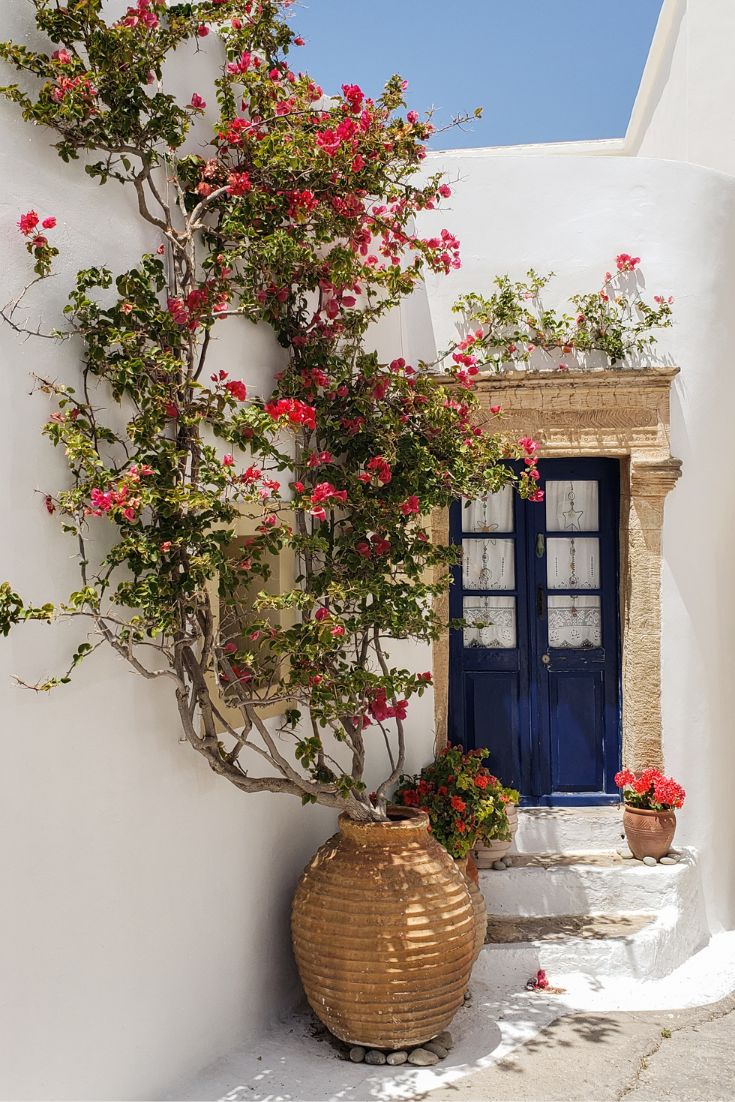35 + Interesting Facts About Greece You Absolutely Have To Know
35 + Interesting Facts About Greece You Absolutely Have To Know
☞ Table of Contents:
What are three interesting facts about Greece?
Greeks wave with the palm closed. Waving with the palm opened and the fingers extended is considered an insult. Newborns are not given a name at birth, but are baptized around their first birthday. Greece has more varieties of olives than any country in the world.
What is Greece most known for?
Being the birthplace of democracy.
What foods is Greece famous for
Gyros and souvlaki pita sandwiches. Moussaka and of course, feta!
When it comes to facts about Greece, everyone thinks about ancient Greece, the Acropolis, and the islands. It is not only that. Besides history, Greek culture and lifestyle have some interesting, things that need to be said. In this post, we will categorize the facts about Greece into parts: general facts, interesting facts and fun facts about Greece, so that you can have a picture of what living in Greece means in reality, heart and soul.
General Facts About Greece
- Population: 11,122,375 , based on the latest United Nations estimates. From that number the 3,154,52 inhabitants are in Athens.
- Government: Greece’s government form is the Unitary Parliamentary Republic. The government is directly elected through the election process. Every Greek citizen who is above 18 years old, is required to vote by law.
- Greece’s official name is the Hellenic Republic. It is known as Hellas or Ellada.
- Currency: Greece adopted the euro, the EU’s common currency. Before that, Greece’s currency was drachma and was Europe’s oldest currency.
- Greece is a member of the European Union since 1981 and of NATO since 1952.
- Greek is one of the oldest spoken languages in Europe since it has been spoken for more than 3.000 years.
- Greece has about 9,000 miles of coastline.
- The first Olympic Games took place in 776 B.C.
- Greece is the place where democracy was born. But democracy in ancient Athens was significantly different from modern democracies. It was both more participatory and exclusive, and there were no political parties in Athenian democracy.
Greece has some firsts in the fields of science and arts:
- The first philosopher is considered to be Thales of Miletus (c. 624 – 425 B.C.). He is credited as giving the first explanation for the origin of the world that was not mythological.
- The first historian is considered to be writer Herodotus (c. 484 – 425 B.C.). He is the author of the first great book of history on the Greco-Persian Wars.
Some Interesting Facts About Greece
- Greece enjoys more than 250 days of sunshine -or 3,000 sunny hours- a year.
- No point in Greece is more than 85 miles or 137 kilometers from water.
- The Acropolis of Athens was a runner-up for the New 7 Wonders of the World.
☞ Read more: The Best Way To See The Acropolis In Summer
- The Greek flag includes nine blue-and-white horizontal stripes, which stands for the nine syllables of the Greek motto “Eleftheria i Thanatos” or “Freedom or Death”. Blue represents Greece’s sea and sky, while white stands for the purity of the struggle of freedom. In the upper left corner is the traditional Greek Orthodox cross.
- The national drink of Greece is ouzo and if you want to say “Cheers”, you say “Stin igia mas” or just “Gia mas”.
- Greece contributes 7% to the marble produced in the whole world. You can see from the architecture style in Greece that we love to use marble everywhere.
- Military service is compulsory for all young Greek men and lasts from six to nine months.
- Coming to names, in Greek society name days are equally important to birthdays. Most of the Greek names are derived from religious saints and the name day is a great celebration for the family.
- The Easter Holiday is of greater importance than the Christmas Holiday. For the Orthodox Church, the resurrection of Christ is the biggest celebration of the year. The whole country laments the death of Christ, before the mood turns festive with Easter Sunday being the climax of the celebrations.
- Greek coffee is made with a fine grind of coffee that is boiled in a tall, narrow pot known as briki. The three main parts of Greek coffee are the grounds, the thick and strong liquid coffee and the creamy foam at the top or crema. It is meant to be sipped slowly with the grounds slowly settling at the bottom. It is usually accompanied by a traditional spoon sweet preserve. Do not drink the bottom part!
☞ Read more: 4 Coffee Spots You Need To Visit In Athens
- The island of Ikaria is one of the five Blue Zones with one of the longest lifespans in the world. Around 30% live well into their 90s, which is on average 10 years longer than those in the rest of Europe and America. They also have much lower rates of cancer and heart disease, suffer significantly less from depression and dementia, maintain a sex life well into old age and remain physically active deep into their 90s. The secret behind these achievements is not specific, but there are a few reasons why we think this is the case. Firstly, their low-calorie diet consisting of a lot of beans and locally grown greens containing antioxidants. Secondly, an active lifestyle due to the uneven terrain that requires people to walk to get around the villages. Stress is another contributing factor or rather the lack of stress. People in Ikaria lead a simple village life, vastly different to the corporate stress of city life. They take a siesta during the middle of the day and get together to socialize over homegrown glasses of wine regularly.
- Greece is the leading producer of sea sponges. Especially Kalimnos island is famous for producing sea sponges.
- Greece has more archaeological museums than any other country in the world.
- There are more than 2000 islands in the Greek territory, but only 170 are populated.
Fun Facts About Greece
- The evil eye is a common superstition. You will find jewelry and other ornaments in the shape of a big blue eye everywhere. Wearing blue eye charms or blue beads can ward away the “evil eye”. The same applies to the blue-painted housetops in Cycladic architecture. They painted the roofs and the shutters in the blue color to keep away the evil.
- Greeks wave with the palm closed. Waving with the palm opened and the fingers extended is considered an insult. So try to avoid it! (Photo – frustrated Greeks showing the whole palm at the government!)
- Newborns are not given a name at birth, but are baptized around their first birthday. The name that will be given to the child is an important issue for the Greek family. Usually, the baby is named after the name of a grandparent, so that the legacy of the family is continued. That is the reason why one family might have 3 children named after grandpa Giorgos.
- Greece has more varieties of olives than any country in the world. It is the world’s 3rd leading producer of olives.
- Finding a coin in your slice of the New Year Eve’s cake is believed to bring good luck and is a blessing for the year coming.
- The saying “taking the bull by its horns” comes from the Greek myth of Hercules saving Crete from a bull by seizing its horns.
- Greece is the most sexually active nation in the world according to condom maker companies.
- The first nude scene in European cinema history was in the Greek movie Daphnis and Chloe in 1931.
- During summertime, there are more tourists in Greece than Greeks.
- Greeks say good morning until 2 p.m. This is not official of course. According to Greek grammar rules, good morning is used until noon. But it is really common for someone to greet you good morning when it is late noon.
- Greece’s economy is the worst among the EU countries. Since 2009, the country is facing one of the worst economic crisis in Greek history. Government corruption cost Greece about $1 billion in 2009. The EU institutions and International Monetary Fund have amerced Greek governments with strict austerity programs. Those years were extremely challenging for the people and country in general, but look at us, we managed to survive!
- The capital of Greece is named after the goddess Athena. According to the myth, Athena and Poseidon fought after the right to name the city after presenting a gift to the people and Athena and her olive tree won.
Besides the history and the islands, Greece has a lot more beauties waiting to be discovered. The way of living is one of the most important beauties of Greece. This list of the facts about Greece is just an introduction to the Greek lifestyle.
Facts about Greece – Destinations and Travel Planning
What are the most popular Greek islands?
The most visited Greek islands are Santorini, Crete, Mykonos, Rhodes, Corfu and Zante.
Santorini – 2 million in 2019, without including cruise passengers
Crete – average of 3.5 million tourists
Rhodes – 1.4 million each year
Mykonos – permanent population of 12,500 with around 2 million arrivals each year
Corfu – 1.5 million visitors through its airport
Zante – another island with more than 2 million annual visitors
What are the most visited archaeological sites in Greece?
The Acropolis in Athens
The Acropolis of Lindos – Rhodes
Palace of Knossos – Crete
Ancient Olympia – Peloponnese
Mycenae – Peloponnese
Epidavros – Peloponnese
Delphi Oracle of Apollo
Sounion – Athens
Vergina – Thessaloniki
Which Greek islands have airports?
Greece is one of the European countries with the most airports together with Italy, Spain and France.
To get the full list of all Greek airports navigate to this article.
Cephalonia or Kefalonia
What are some less well known destinations in Greece?
There are countless spots around Greece that deserve the spotlight, yet remain relatively unknown on the international scene. For overtourism conscious travellers and lovers of nature, peace and tranquility this is good news.
Whether you are after a mainland or island destination you can find a destination that your friends probably don’t even know how to pronounce.
Mainland
Thessaloniki, Halkidiki, Epirus, Mani, Kastoria, Nafplion
Islands
Koufonisia, Astypalaia, Chios, Amorgos, Skiathos, Lemnos
Hard to choose which is the right island for you?
Reach out and let’s start planing your trip
*Disclaimer: This page includes affiliate links. If you decide to book something through one of them, I might get a little bonus, but it won't cost you anything extra.*

